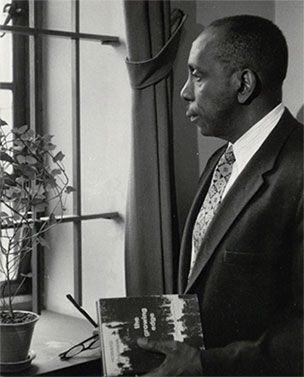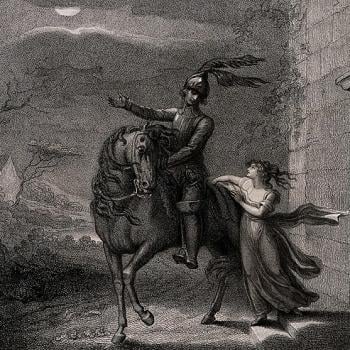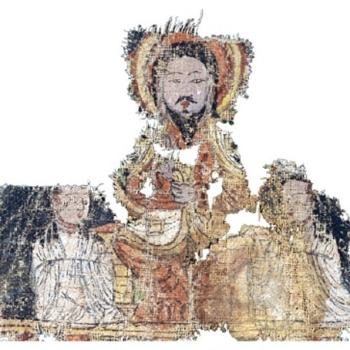When the song of the angels is stilled,
when the star in the sky is gone,
when the kings and princes are home,
when the shepherds are back with their flocks,
the work of Christmas begins:
to find the lost,
to heal the broken,
to feed the hungry,
to release the prisoner,
to rebuild the nations,
to bring peace among the people,
to make music in the heart.
Howard Thurman
Howard Washington Thurman was born today, November the 18th, 1889, in Daytona Beach, Florida.
His father died when he was seven, but he was raised by his mother Alice and maternal grandmother Nancy Ambrose, who in her childhood had been a slave. Thurman was able to attend one of the few High Schools available to black children in Florida. He then attended Morehouse college, graduating valedictorian in 1923. From there he attended Rochester Theological School (now Colgate Rochester Crozer Divinity School). A year before graduation, again as valedictorian, he was ordained a Baptist minister.
A few months after graduation he married Katie Kelley a teacher. They had a child, Olive before Katie died of tuberculosis.
He served as a parish minister for two years before receiving an academic appointment jointly at Morehouse and Spellman College, teaching philosophy and religion. Continuing his own education he began a relationship with the Quaker mystic and teacher Rufus Jones. In 1932 he married for a second time to Sue Bailey. They had a child, Anne.
Also in 1932 Thurman was appointed the founding dean for Rankin Chapel at Howard University. During this time he was the lead for a delegation of African American ministers visiting Mahatma Gandhi. In 1944 Thurman left Howard to help found the Fellowship of Reconciliation, as well as to start the Church for the Fellowship of all Peoples in San Francisco (currently led by a UU minister).
In 1953 Thurman was invited to become dean of Marsh Chapel at Boston University. His influence as dean as well as a professor at the seminary and within the theological community in and around Boston is probably incalculable. Among those who credited him as a principal figure in their spiritual formation were Sherwood Eddy, James Farmer, A. J. Muste, Pauli Murray, and Zalman Schachter-Shalomi. No doubt the most famous of his students and mentees was Martin Luther King, jr.
Howard Thurman wrote twenty books investigating religion, theology, and philosophy. Probably his most famous and influential book was Jesus and the Disinherited.
Thurman retired in 1965, returning to San Francisco with his wife. There he continued to work with the Howard Thurman Educational Trust until his death on April 10th, 1981.
His importance was recognized during his lifetime. In 1953 Life magazine listed him among the twelve most important religious figures in the United States. And in 1974 he was named an honorary Canon at the Episcopal Cathedral of St John the Divine in Manhattan. After his death, the chapel he served at Howard was renamed Thurman Chapel in his honor.
In a brief description of his life and work, the Howard Thurman Center tells us:
“Thurman dedicated his life to the pursuit of a society that could acknowledge its differences yet elevate its common human ties. He visualized a world where racial, ethnic, or religious barriers did not serve as a roadblock to creating meaningful relationships. He called on us to do what makes us come alive, and it’s his collective story, philosophy, and vision that drives Boston University to create a community filled with openness, generosity, and fellowship. As current Dean of Marsh Chapel Robert A. Hill put it in a 2010 sermon, ‘He was 100 years ahead of his time, 50 years ago, so he is still 50 years ahead of you and me.’”
It’s still true…













